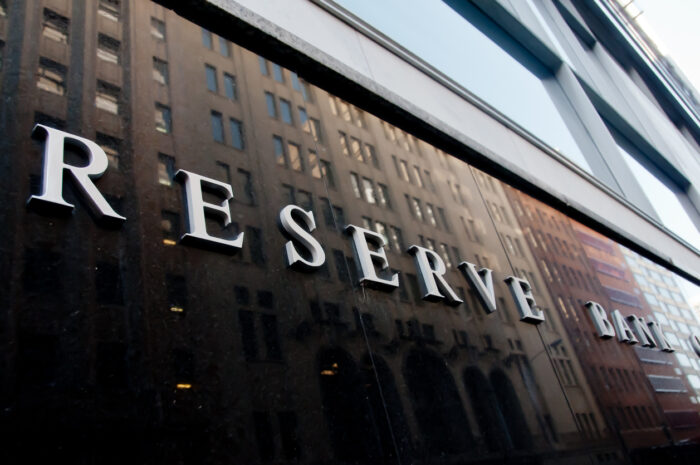Will interest rates drop in 2024? And what will rates be in 2025?
Published
August 20, 2024
Published
August 20, 2024

Will interest rates drop in 2024? Where will the cash rate be in 2025? And do we have a crystal ball to know for sure?
While we can’t give certain answers (well, except for the crystal ball… we’re currently out of stock), we do have a good deal of data, official statements and expert opinions to help us guess how interest rates might move in the coming 18 months.
We’ll attempt to answer these questions when we digest the Reserve Bank of Australia’s recent August 2024 comments—after leaving the cash rate unchanged at 4.35 per cent—and outline the Big Four banks’ current views on interest rate forecasts. They all depend on inflation and a range of economic factors, like wages growth, consumer demand, productivity and of course the housing market. Let’s get to it.
What the Reserve Bank says about interest rates in 2024 & 2025
The RBA dances to its own tune. So, we’ll never get a clear answer from them about their intentions for the future. But we can decipher from their recent statements that their inflation concerns are far lower than previous months, perhaps giving mortgage holders hope for some cuts in the near future.

After its August 2024 meeting, the RBA Board said they expect inflation to remain above the target range of 2 per cent to 3 per cent until late 2025, with underlying inflation at 3.9 per cent over the year to June. That’s not great news, but they do boast they’ve made progress since inflation peaked in 2022. Even though inflation has since been persistently high—especially in the services sector—sitting in the midpoint of the Reserve’s target for 11 consecutive quarters.
Recent consumer demand has overperformed expectations, but that’s not saying a whole lot. Plus, it’s the capacity to meet this demand that’s the worry, only adding to inflation pressures.
Wages growth is peaking, they say, but it remains above sustainable levels given productivity trends. Economic momentum is slow, brought about by weak GDP growth, rising unemployment and potential for subdued household consumption. The latter will especially be true once the nation’s housing prices are unaffordable for the bulk of the nation’s buyers (in some precincts, we’ve arrived at this point already).

Global uncertainties could also add to rising inflation, the RBA says, including a softening Chinese economy affecting commodity prices, volatility in financial markets, depreciation of the Aussie dollar and elevated geopolitical risks. These could all impact supply chains and inflation.
At the end of the day, the RBA remains ready to adjust policy as needed to get inflation back within target range. Too many head and tailwinds exist in 2024 to know exactly what the RBA will set the cash rate by 2025. As we’ve said, they dance to their own tune. But the high energy music they danced to in the months following May 2022 has seemed to have descended to a slow waltz.
What the banks say about rates in 2025
The Big Four Australian banks—Commonwealth, Westpac, NAB and ANZ—are lining up in their predictions of a November 2024 rate cut. Pretending they’re a collective bunch of agreeing institutions, here are their justifications for a pre-Chrissy rate cut:
Inflation

All four banks initially anticipated rate cuts for September 2024 but have now revised their forecasts due to stronger-than-expected March inflation data. They now predict only one rate cut this year—likely in November—by 0.25 percentage points.
Demand and labour costs
More economic indicators have bolstered the banks’ opinion of a November drop. Weak retail sales indicate households are under significant pressure, according to the banks, with consumer demand very restrained despite the brisk pace of population growth.
The economy is still contracting on a per-person basis, they say, leading to expectations that the labour market will further loosen, helping to moderate wages pressures and eventually drag inflation back to the RBA’s target range. The timing of this prediction is up in the air.
Global uncertainties
The banks point out that there’s a broader risk of recession if interest rates are raised further. That said, there are some economists spreading caution that the RBA might still increase rates once more to ensure inflation is controlled.
There’s far from a consensus on this theory. But keep in mind, the individual commentators on Australia’s economy have sometimes been the prevailing voice of truth over mainstream views.
The final view of interest rates

You can see by now there’s a spread of complexity in the matter of interest rate movements in 2024 and 2025. The onus is on investors to keep a finger on the pulse and ensure investment strategies allow for movements to the cost of debt (and the resulting influence on the market and greater economy).
Yes, banks agree rates will gradually reduce starting in November 2024. But, even if they’re right, should you wait until then for a prosperous investment? Or take part now?
For over ten years, we’ve offered syndicated property investments to investors looking for secure cash flow and robust capital growth. And we’ve never lost them a dollar*. Find out if a Properties & Pathways syndicated property investment is right for you by getting in touch with us today.
Not ready to invest? Subscribe to our newsletter for more info on the Australian property market, the country’s economy and how you can build wealth with a smart real estate investment.
*Past performance is not indicative of future performance. Talk to your accountant or financial planner before making any investment decisions.






